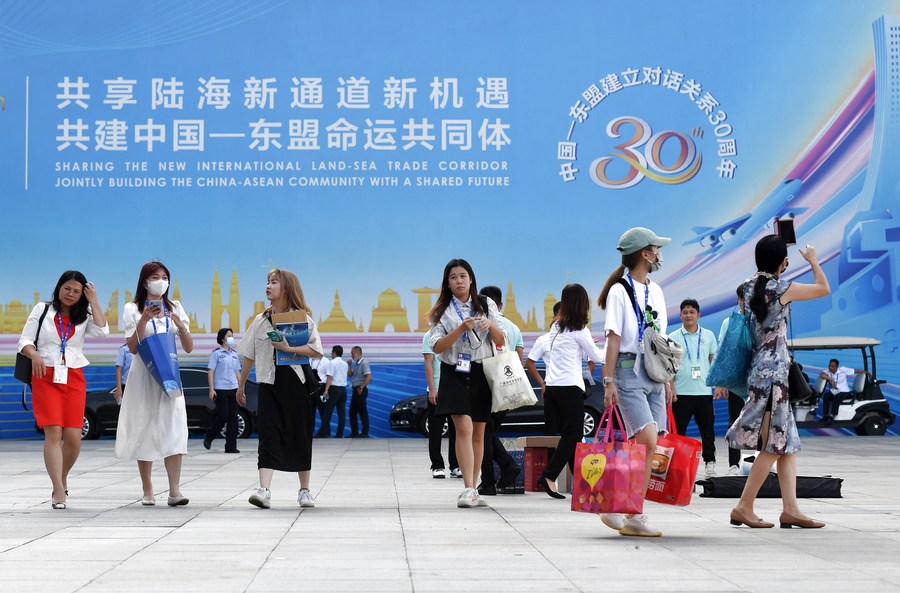
South China's Guangxi Zhuang Autonomous Region, as the frontier of exchanges and cooperation between China and the Association of Southeast Asian Nations (ASEAN), has offered an exotic taste featuring ASEAN cultures for tourists.
Due to geographical proximity and cultural affinity, a strong atmosphere of cross-border cultural exchanges and integration between China and ASEAN has formed in Guangxi over the years.
In Nanning, the capital of Guangxi, Thai restaurants, Indonesian snack bars, Vietnamese specialty shops and various shops with Southeast Asian elements are often seen.
Fantawild Asian Legend, a theme park in Nanning showcasing the cultures of 10 ASEAN countries, has tailored specific entertainment programs such as a water splashing festival and a fireworks show for the summer. Tourists can watch a performance, showing off local customs, folk galas of Southeast Asian countries, and even appreciate magnificent sceneries of ASEAN countries in a cinema equipped with a giant hemispherical screen.
Jon Aquino, an Indonesian student from Guangxi Minzu University, was impressed by the Indonesian and Thai-style buildings and Indonesian song and dance performance.
"I really want to join the dance," he said.
Namdet On Anong, a Thai teacher of Guangxi University of Foreign Languages, loved the park's high-tech ride show based on the Thai Ramakien, the National Epic of Thailand.
"Technology really empowers cultural tourism. We sit on the dynamic rail car and can easily relate to this story. Many Chinese tourists around me were also attracted to the charm of Thai culture," Namdet On Anong said. "It feels like I'm back in my hometown. It's very warm and makes me miss home."
Lu Xiaoli from Guangdong Province brought her family to take a special photo with "Cambodian Angkor Wat" in the park, along with other landmarks of Southeast Asian countries, as the pandemic has made overseas travelling less convenient than before.
"The park uses technologies to give tourists a better experience, which is like a mini trip to those countries," she said.
Hu Yang, marketing director of Fantawild, said this year's tourist rush came earlier than usual, as the daily visitor volume exceeded 10,000, and daily reception of out-of-town tour groups hit more than 30.
"Tourism innovation has become even more important. The industry should pay more attention to high-tech application, integration with other platforms, and update and enrich tourism products through technical means to meet the needs of different groups," said Huang Yanling, deputy dean of College of Tourism and Landscape Architecture of Guilin University of Technology.














